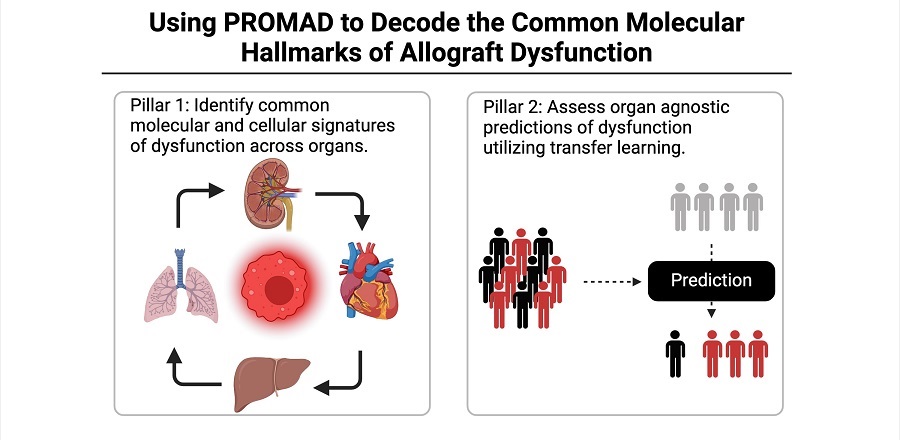Universal Blood Test Could Predict Organ Transplant Outcomes with Unprecedented Accuracy
Posted on 19 Jun 2024
In a landmark study, an interdisciplinary research team from The Westmead Institute for Medical Research (WIMR, NSW, Australia) and the University of Sydney (NSW, Australia) has identified, for the first time, common molecular biomarkers for transplant rejection across major transplanted organs, including hearts, lungs, livers, and kidneys. Their findings suggest that the molecular pathways involved in organ rejection are consistent across these different solid organs. This breakthrough is crucial as it enables the development of strategies aimed at improving the success rates of all types of organ transplants by utilizing machine learning to predict transplant outcomes with remarkable accuracy.
In a collaborative effort, the researchers created the Pan-organ ResOurce for Molecular Allograft Dysfunction (PROMAD), a comprehensive molecular atlas that includes over 12,000 patient samples from across the world. This atlas allows broader access to transplant data that was previously unavailable to many researchers, fostering international cooperation. The creation of this atlas has led to the development of a proof of concept for a universal blood test that can predict the possibility of transplant rejection before it happens, potentially redefining standards in precision medicine and enhancing transplant outcomes globally.

The team is currently advancing this research by trialing a blood test in laboratory settings that could enable physicians to predict and prevent organ rejection. Moreover, their findings provide a foundation for applying these insights to other types of transplantation and different medical conditions. The encouraging outcomes of this research not only highlight the power of international collaboration but also offer new hope to millions awaiting life-saving transplants. Moving forward, the research will expand these discoveries to additional transplant types and further improve the predictive models used in the study.
"This study is a perfect example of how precision medicine can significantly impact clinical practices by integrating global data to benefit individual patients," said Professor Natasha Rogers, Deputy Director of WIMR's Centre for Transplant and Renal Research, and a senior author on the study. The findings of the study were published in Nature Medicine on June 18, 2024.
Related Links:
WIMR
University of Sydney














